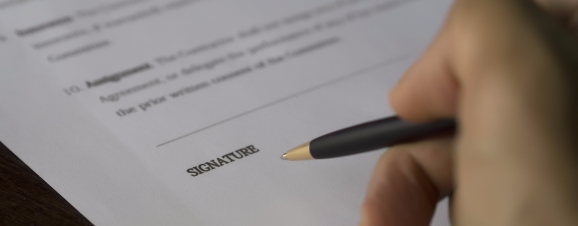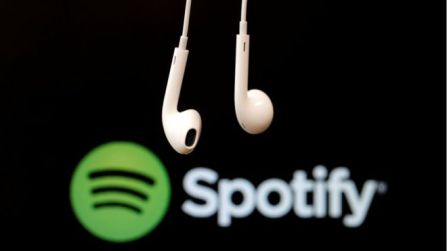1.”Keep” your publishing.
Although this list is in no particular order, the first piece of advice I ever got given, and continue to be given is that I should “keep my publishing”.
On the surface this seems like good advice, keeping something sounds positive, especially when it’s yours, and publishing sounds quite important so keeping your publishing seems like pretty decent advice.
The only problem is that your publishing, like most things, has no value until it is sold or exploited. So in order to make money from your publishing your songs need to be getting synchronised in TV, films, computer games and other licensed platforms and media. When that does happen someone needs to make sure all the correct paperwork is done and the fees from the usage is being accounted for properly.
You can do a lot of this yourself by joining a performing rights society for composers (such as PRS for Music in UK, ASCAP/BMI/SESAC in USA or APRA in Australia) but they don’t remove the need for a publisher. They don’t promote or pitch your works for usage, and some of the societies can’t collect all of the royalties due to you.
So unless you are equipped and experienced enough to publish yourself, “keeping” your publishing will no doubt make you much less money than doing some sort of deal with an established publisher.
There are many advantages to signing with a publisher, not least of all that some are willing to pay advances. The advice should really be to make sure you get a good deal, that isn’t too long, when signing your publishing.
2. You need to sign with a big record company if you want to be successful.

The common misconception is that the big record labels have the fool-proof formula for chart success. Sign to a big label, or better still a “major”, and you’re guaranteed to be a big star.
The truth is the big labels are not able to “make” you a star. They are no more in possession of the secret formula for success than the next viral internet star.
They may have the infrastructure, resources and connections to make sure the music gets out there but they can’t force people to like it.
The cost of releasing an album on a major is so high that in most cases you have to go at least silver (60,000 units) just to break even.
Based on the ratio of artists that signed major record label deals in the UK compared to those whose albums went gold (100,000 units) your chance of being a huge success with a major label is just 5.7%.
Even if it does sell well, will you make much money? Major labels will generally sign artists on PPD (published price to dealer) deals, meaning the artist receives a small percentage of gross profits, usually around 15%. Dealer price is roughly £6.50 so the artist share is about £1, and that is shared between all the contributors that are contracted to receive royalties. So after paying producers and collaborators the artist might end up with 50p per unit sold.
So a gold certified album might net the artist £50,000. Considering the album would have grossed £650,000 that doesn’t really seem like such a good payout.
Smaller independent labels tend to do 50/50 net profit deals. Once all the production, manufacturing and promotion costs are recouped the artist and label share the remaining profit equally.
The budget for making an album with an independent is a lot lower, but then so is the breakeven point. An artist on an independent label could potentially make the same £50,000 payout from just 25,000 units.
Independent label deals also often include a clause that transfers the “masters” back to the artist after a period of time, whereas major deals usually transfer master rights to the label for perpetuity (forever). Also, the more money they invest in the artist the more control over the output they will expect, so this isn’t ideal for anyone who wants creative control of their music.
This isn’t entirely bad advice, going with a label may be a good move for some people but it’s certainly no guarantee.
3. Don’t Get a Record Deal, Just Do It Yourself.
So if going with a label is no guarantee of success, and profit then the other option is to go it alone.
It’s true that record labels keep most of the profits to themselves, sometimes as much as 95%, even independent labels will take around 50%, so surely cutting them out of the equation is going to boost the money the artist makes? Maybe.
First of all we need to ask a few basic questions.
Why do we need record labels?
For most people this question has a simple answer, money!
They pay for the album to be recorded, they pay for top producers to oversee the process, they pay for promotion, manufacturing, tour support, and they may even pay an advance so you can enjoy the rock star lifestyle before a single record has been sold.
….but what do they actually do?
In our haste to free ourselves from the record labels, many did so without finding out what it was they actually did all day. The image is often of fat cat record executives sitting around smoking expensive cigars, in corner offices, just watching the money roll in from the hard work and creativity of the artists. The truth is the record labels performed many essential roles, roles that many self releasing artists are oblivious to.
I have spoken to many self releasing artists who don’t even see themselves as record companies, so it’s little wonder that many of the things a record company should do are being neglected.
Many of these things, such as registering with a neighbouring rights society, have a revenue stream associated with it. For many record labels neighbouring rights income makes up around 40% of their overall revenue. Yet for many self releasing artist this money goes uncollected. Nearly half of their potential income, left on the table.
That’s just one aspect, there’s also chart registration, awards submissions, accounting, radio and TV promo, legal, the list goes on.
It’s understandable that many musicians overlook many of these tasks, no musician got into music to fill in forms, file documents and study statistics. They want to write, play and record music, everything else is just an unwanted distraction. So unless you are also business minded and don’t mind doing a lot of paperwork then you should either consider partnering with a label or hiring some people to do the admin for you.
“Founded a label now I’m drowning in paper…work” Suffa (Hilltop Hoods “I Love It”)

4. Record/Mix it yourself and Spend The Money You Save On Mastering.
As a sound engineer this one probably causes the most concern, not least of all because I hear it so often. So far we’ve dealt with advice that is incomplete or misleading, this is just plain wrong.
Without going too deep into the mastering debate, mastering isn’t supposed to change the way your music sounds on a creative level or fix imperfections of your mixing or recording skills. It was designed to prepare your tracks to make a production master for manufacturing. Which is why it’s called mastering in the first place.
That doesn’t mean you can’t enhance your recordings with the right mastering processes but the results are limited to the quality of what there is to work with.
To put it bluntly; Shit in = Shit out.
“You can’t polish a turd” the saying goes, but in truth you can not only polish a turd, you can also roll it in glitter and tie a bow around. It will, at the end of the day, still be a piece of shit. A shiny, sparkly shit with a bow around it, but a piece of shit none-the-less.
You wouldn’t hire the best chef in the world and expect him to cook you a michelin star worthy meal with nothing but a tin of tuna and a can of squeezy cheese, so why expect to get good results when hiring an expensive mastering service to work on your homemade recordings made with whatever equipment you can afford or borrow.
It’s a better idea to focus on the source, get the best musicians you can and keep recording until you get the best possible take.
Go to a decent studio if you can afford to or consider hiring a couple of select high end units for your studio.
Pay attention to the tone and timbre of the instruments while recording, don’t expect to “fix it in the mix” or cover over the mistakes afterwards.
Try to get your mixes as close to sounding like the finished article as you can. By that point the job of the mastering engineer will be minimal, and it will reduce the time taken to complete the job, ultimately making mastering cheaper anyway.
5. Don’t put your music on streaming sites, they just rip off artists.

You’ve probably read, or been told about, at least one of the myriad of horror stories about scandalously low payouts artists receive from music streaming sites like Spotify.
The first issue with these stories is that they tend to focus on just one revenue stream for just one of the contributors on a track.
Each time a track on a streaming service is played they make 2 payments. One to the “recording rightsholder”, usually a record label, via a distributor and another smaller payment to the composers via a performing rights society like PRS.
The recording rightsholder will then be responsible for paying the artists their share. This will be based on the royalty split agreed in their record deal. As I stated earlier the split can be as low as 5% and is rarely higher than 50%, this then has to be split between everyone on the track.
It’s obviously going to seem small when you look at just a fraction of the money.
Also, the label has just as much to do with the amount the artist receives as the streaming service.
The other issue with these stories, and the way many of us think about streaming, is that we are looking at the numbers all wrong.
When we hear someone had a million plays and only got five grand we are shocked.
If that artist sold 1 million singles, even as downloads they’d make at least a half a million right?
If they got played 1 million times on the radio they’d get a massive payout from PRS or ASCAP right?
Both those statements are true, but a million plays on a streaming service isn’t the same as million single sales, a million downloads, or a million plays on the radio.
We need to recalibrate.
If i buy a single and listen to it 3 or 4 times a day I’ll hit 100 listens within a month.
So a million streams could just be 10,000 people listening to it 3 or 4 times a day for a month.
10,000 sales would get you about 5 grand.
1 million streams means up to 1 million people heard it. A national broadcaster like the BBC can reach more listeners than that with just 1 play of the song.
1 play on the BBC will get you a few quid, much less than 1 million streams on Spotify.
So over time streaming is at least as profitable as sales and far more lucrative than radio play.
The main difference in the income from streaming and sales is that with a sales driven model the majority of earnings from an album, or other release, would be soon after the initial and then slowly decline over time.
There may some uplift when the singles were released but generally the sales would start high then slope away. With a streaming dominated model there will be no such initial peak, in fact it will probably be the exact opposite with revenue starting relatively low and then building over time as more people hear and share the song.
I could dig much deeper into this debate, and I will in a future article, for now the final thing I want to note is that Spotify and the other streaming sites aren’t actually making any profit at the moment as their pay structure is to pay a percentage of gross revenue not net profit so it’s unfair to say they are ripping anyone off.
If the revenue from advertising and subscription increases so too will the money received by the writers, performers and record labels. All the negative stories around will just discourage listeners from paying, why would they if they thought the money wasn’t being fairly distributed?
It’s actually in the interest of all professional musicians that a service such as Spotify (or an alternative) is successful and can create a sustainable model.


Very insightful Wayne. Enjoyed reading that and found it very informative.
LikeLike
Wonderful! Great read and I look forward to much more from you (y)
LikeLike
Excellent and thorough – and definitely some good advice on ‘bad’ advice!
LikeLike
About time we get some clarification on Spotify!
LikeLike
Mate. Loving the quality of your content. Looking forward to more.
LikeLike
Great to see you finally set up your blog and are providing essential reading 👏🏻
LikeLike